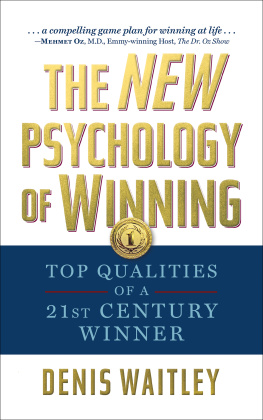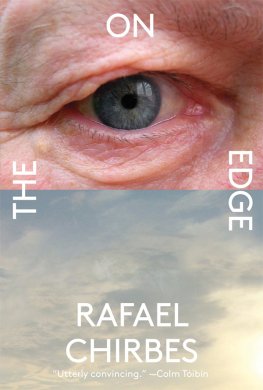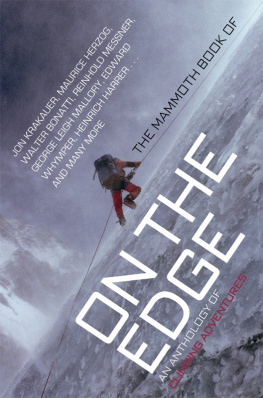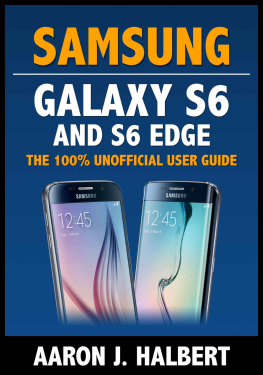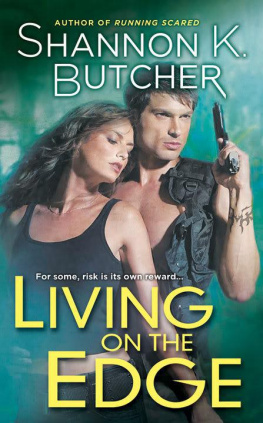Denis Waitley - The Winner’s Edge
Here you can read online Denis Waitley - The Winner’s Edge full text of the book (entire story) in english for free. Download pdf and epub, get meaning, cover and reviews about this ebook. year: 1986, publisher: Berkley, genre: Religion. Description of the work, (preface) as well as reviews are available. Best literature library LitArk.com created for fans of good reading and offers a wide selection of genres:
Romance novel
Science fiction
Adventure
Detective
Science
History
Home and family
Prose
Art
Politics
Computer
Non-fiction
Religion
Business
Children
Humor
Choose a favorite category and find really read worthwhile books. Enjoy immersion in the world of imagination, feel the emotions of the characters or learn something new for yourself, make an fascinating discovery.

- Book:The Winner’s Edge
- Author:
- Publisher:Berkley
- Genre:
- Year:1986
- Rating:3 / 5
- Favourites:Add to favourites
- Your mark:
- 60
- 1
- 2
- 3
- 4
- 5
The Winner’s Edge: summary, description and annotation
We offer to read an annotation, description, summary or preface (depends on what the author of the book "The Winner’s Edge" wrote himself). If you haven't found the necessary information about the book — write in the comments, we will try to find it.
The Winner’s Edge — read online for free the complete book (whole text) full work
Below is the text of the book, divided by pages. System saving the place of the last page read, allows you to conveniently read the book "The Winner’s Edge" online for free, without having to search again every time where you left off. Put a bookmark, and you can go to the page where you finished reading at any time.
Font size:
Interval:
Bookmark:
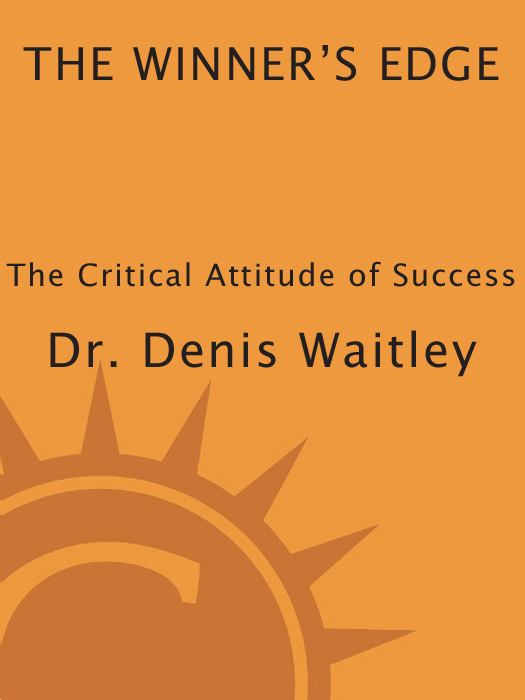
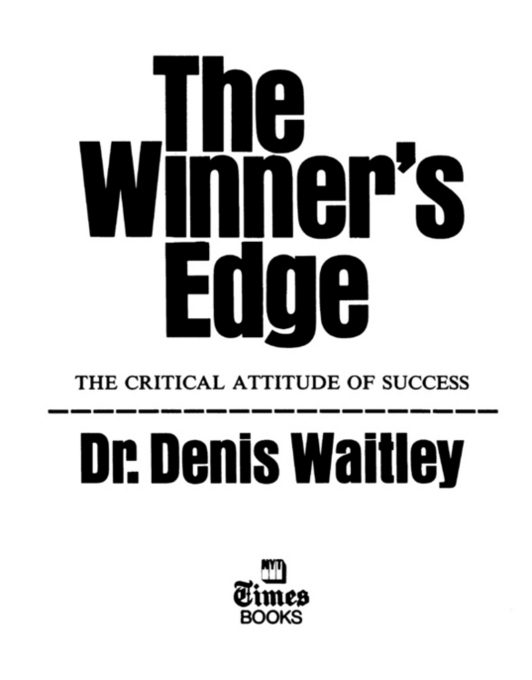
Published by TIMES BOOKS, a division of Quadrangle/
The New York Times Book Co., Inc., Three Park Avenue,
New York, N.Y. 10016
Published simultaneously in Canada by Fitzhenry & Whiteside,
Ltd., Toronto
Copyright 1980 by Denis Waitley
All rights reserved. No part of this book may be reproduced in
any form or by any electronic or mechanical means, including
information storage and retrieval systems, without permission in
writing from the publisher, except by a reviewer who may
quote brief passages in a review.
Library of Congress Cataloging in Publication Data
Waitley, Denis.
The winners edge.
Bibliography:
1. Success. I. Title.
BF637.S8W28 1980 158.1 795392
eISBN: 978-0-307-81876-8
v3.1
To my parents, Edwin and Irene,
who made me feel special.
To my wife, Susan,
who makes every day our homecoming celebration.
To my children, Debbie, Dayna, Denis, Darren, Kim, and Lisa,
who give me joy today and optimism for tomorrow.
WINNERS
SELF-HONESTY
SELF-ESTEEM
SELF-IMAGE
SELF-EXPECTANCY
SELF-DIMENSION
I grew up during the post-Depression and World War II years in San Diego, California. Like everybody else, I recall cutting pieces of cardboard and slipping them inside my shoes each morning so I wouldnt wear holes through my socks at school. We didnt have much money, but we never went to bed hungry and what clothes we had were clean. My Mom and Dad argued a lot when I was young, probably with financial pressures the underlying theme. And although they were obviously unhappy, they gave me the greatest gifts Ive ever received: early feelings of being special.
I really first became aware that I might be worthwhile at about age nine. My Mom read me adventure stories and poetry and told me our ancestors were very creative. My Dad always relished my smallest accomplishments in school and sports and painstakingly made a ritual out of measuring my one-sixteenth-of-an-inch growth in height with a ruler and pencil on my closet door. I was a peewee for my age, but he promised me Id be tall. (Hes 5 feet and 8 inches, and I finally reached my goal of 6 feet.)
My Dad gave me what I believe are the most important time frames between a parent and child: He sat on my bed each night for 5 to 10 minutes for a couple of years and told me he loved me. Im proud to wear your name, my son, he glowed. I missed my ship, but youll catch yours. You were born to win, son! And each night, after telling me I was made of the right stuff, hed turn out the light in my bedroom and whisper the same thing night after night: Remember, son, when I turn out the light for you, it goes out all over the world. Your light is the only light that shines, because life only exists through your eyes. Life is the movie you see through your own, unique eyes. It makes little difference whats happening out there, its how you take it that counts.
And then he went away one night. My mother and he had had a fight. He turned out my light and, instead of his usual Good night, said Good-bye.
During the next several years, while my parents were separated, my mother and grandmother were the strong motivators in my life. My grandmother, who lived eighty-six beautiful years without a complaint, told me I was special. My mother challenged me to step into my fathers shoes. After he went away, I learned that he was serving aboard ship in the South Pacific during the final struggles of World War II. I read and reread his once-a-month letters encouraging me to strive for excellence. My mother helped me campaign for student offices in school and gave me more responsibilities each week to help manage the household.
I began to excel. Firstly, my father expected the best from me. Secondly, my mother challenged me to get busy and put my optimism to the test. And thirdly, my parents were unhappy and unfulfilled, and I chose to be happy and fulfilled. Therein was spawned my philosophy of life: Expect the best; convert problems into opportunities; be dissatisfied with the status quo; focus on where you want to go, instead of where youre coming from; and, most importantly, decide to be happy, knowing its an attitude, a habit gained from daily practice, and not a result or payoff.
I was a straight A student throughout high school, student body president, multisport varsity letterman, graduating with honors and with a scholarship to Stanford University and an appointment to the U. S. Naval Academy at Annapolis. I went Navy and soon learned one of the greatest lessons of my life: as a Plebe during my freshman year at the Academy, I was lower on Tecumsehs totem pole than the Admirals dog! There were thirty-seven hundred other guys at Annapolis and most of them outranked me, outran me, outscored me, outscholared me, and outshone me. I learned the wisdom of not comparing myself so much to others and began to set internal standards of excellence. I didnt like the military routine and the idea of a pecking order based upon a combination feudal system and time-in-rank. It would have been too easy to quit and high-tail it back to Stanford and the University of Southern California (USC). But my Dad had offered me some good advice before I took the Midshipmans oath: When you hit a sour note, finish the song before you start another. And so, I stuck it out for four years and was graduated in June of 1955. It was one of the best decisions of my life.
Pensacola and Naval Aviation made my spirits soar. I felt like Jonathan Livingston Seagull. Flight training was tough, high-risk, an individual highand designed for optimists only! As a carrier-based attack pilot, I came to understand the need for pinpointing targets and destinations (GOAL-SETTING). I learned that there is an almost automatic winning response or reflex developed through simulation and training (SELF-DISCIPLINE). And I tasted the essence of courage (FAITH and COMMITMENT). Flying in close formation at supersonic speeds taught me the value of inter-dependency and cooperation (TEAMWORK), despite the dry mouth, heart-in-throat feeling, and white knuckles.
My actual research on high-performance winning behavior began during the period 19581960, while I was flying a desk as a special project officer for the Navy Department at the Pentagon. As a thesis for graduate night school in semantics and propaganda, I conducted an in-depth study of Communist interrogation methods and behavior-modification techniques during the Korean War. Having become fascinated with the difference between purposeful and purposeless individuals, I left the Navy and entered the decade of the 1960s determined to find some common denominators for high achievement under stress. As a consultant to industry, I devoted four years to industrial psychology, counselling chief executives on public, market, and shareholder attitudes. I commuted weekly between Los Angeles and Wall Street studying attitudes as they related to the bottom line.
The turning point in my career came in 1965, when I joined the Salk Institute for Biological Studies in my home town of La Jolla, California. Although my capacity at the Institute was nonscientific, I had a unique opportunity to observe that in order to approach a solution for a particular disease, the investigator must first learn how the healthy organism functions. Instead of focusing on the disease and cure, the scientist looks at life and health. To cure cancer, we need to learn how the healthy cell reproduces itself and what turns its growth on and off.
Font size:
Interval:
Bookmark:
Similar books «The Winner’s Edge»
Look at similar books to The Winner’s Edge. We have selected literature similar in name and meaning in the hope of providing readers with more options to find new, interesting, not yet read works.
Discussion, reviews of the book The Winner’s Edge and just readers' own opinions. Leave your comments, write what you think about the work, its meaning or the main characters. Specify what exactly you liked and what you didn't like, and why you think so.

